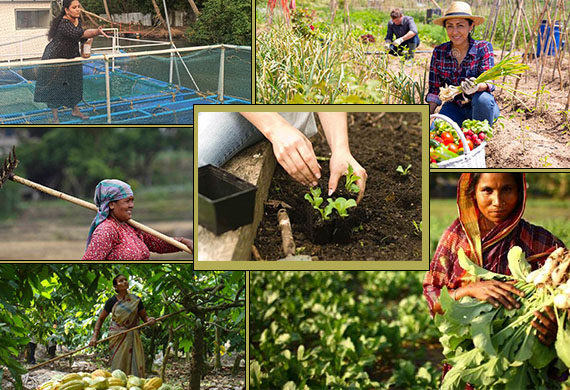Introduction ![]()
Agriculture is a vital sector in many economies, including Nigeria, contributing significantly to food security, employment, and GDP. Women play a crucial role in agriculture, often undertaking multiple tasks from planting to harvesting, processing, and marketing. Despite their significant contributions, women in agriculture face unique challenges that impact their productivity and empowerment.
Contributions of Women in Agriculture ![]()
Women in agriculture are involved in various activities including:
- Crop production: planting, weeding, harvesting.
- Livestock management: caring for animals, processing animal products.
- Food processing and marketing: transforming raw products into marketable goods.
In Nigeria, women contribute substantially to agricultural production, especially in food crops like cassava, maize, and vegetables.
Challenges Faced by Women in Agriculture ![]()
- Limited access to resources: Women often have less access to land, credit, fertilizers, and improved seeds compared to men.
- Time constraints: Balancing agricultural work with household chores and childcare limits their ability to engage fully in agriculture.
- Limited training and technology adoption: Women may have less access to agricultural extension services, training, and modern technologies.
- Cultural and social norms: In some communities, cultural norms restrict women’s participation in certain agricultural activities or decision-making processes.
Opportunities for Women in Agriculture ![]()
- Empowerment through access to resources: Improving access to land, credit, and technology can enhance women’s productivity and income.
- Value addition and marketing: Engaging in value-added activities like food processing can increase women’s income and empowerment.
- Training and capacity building: Targeted training programs can enhance women’s skills in agriculture, leading to better outcomes.
- Policy support: Policies that promote gender equality in agriculture can help address challenges women face.
Case of Nigeria ![]()
In Nigeria, initiatives like women-focused agricultural programs and cooperatives have shown potential in empowering women in agriculture. For example, programs providing access to microcredit or training in agro-processing have helped women increase their incomes.
Conclusion ![]()
Women play a significant role in agriculture, contributing to food security and livelihoods. Addressing the challenges they face and leveraging opportunities can lead to more equitable and sustainable agricultural development.

